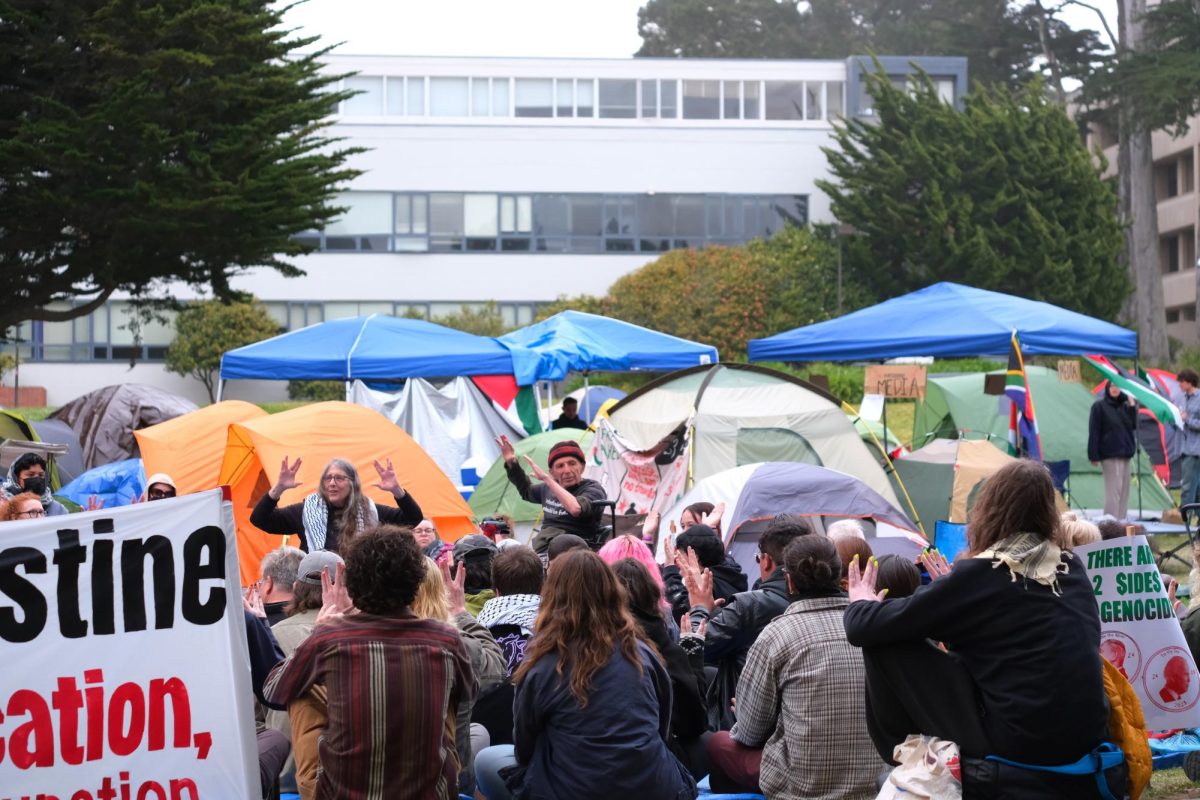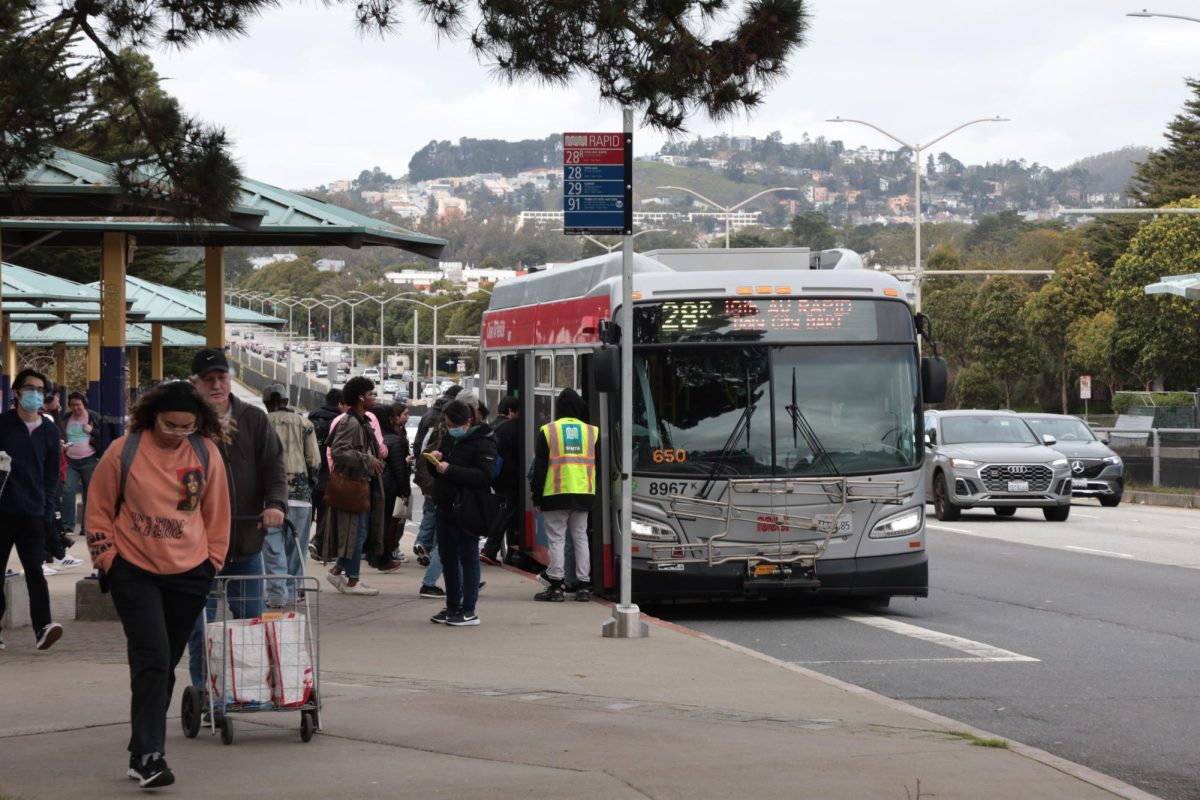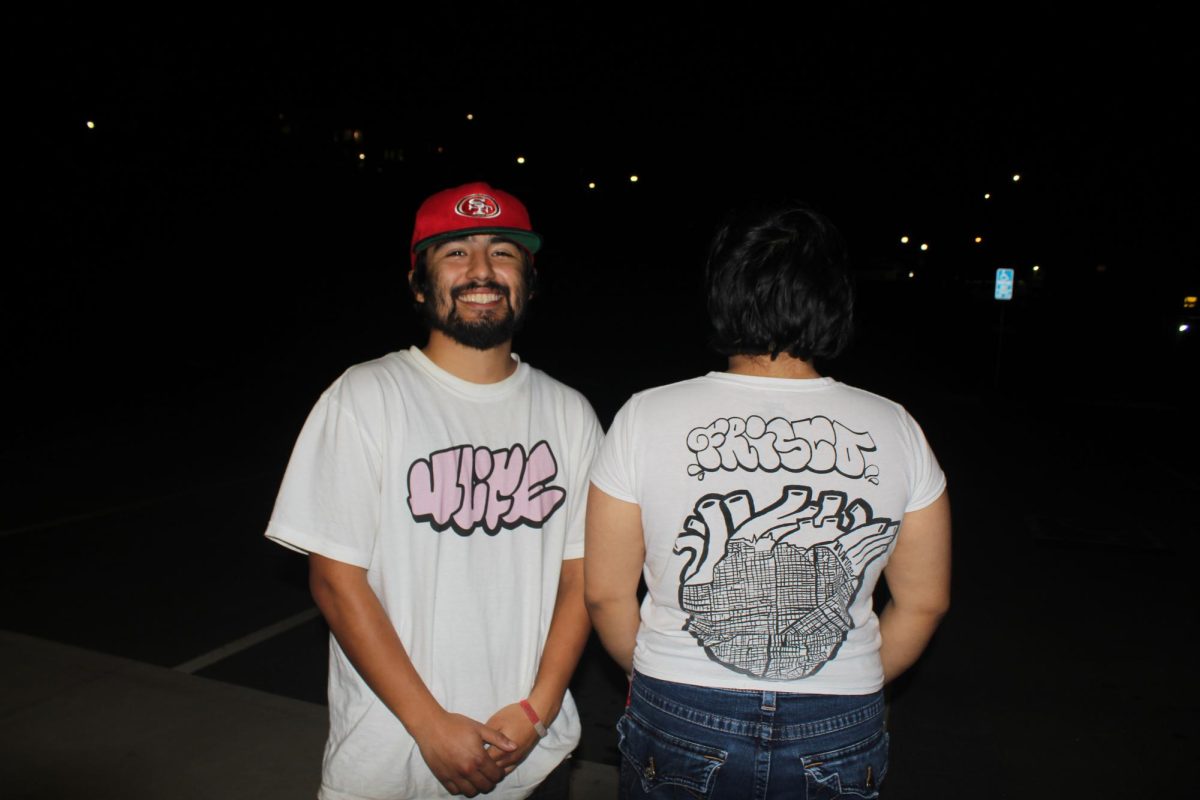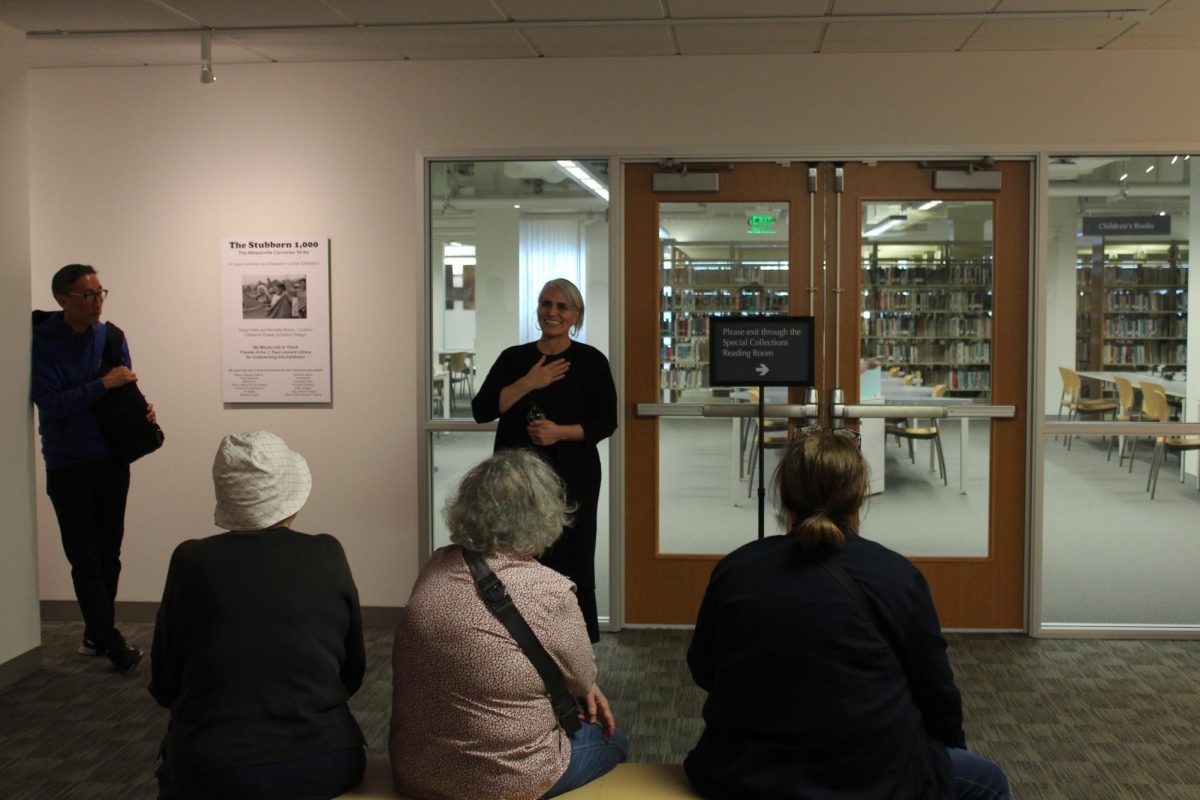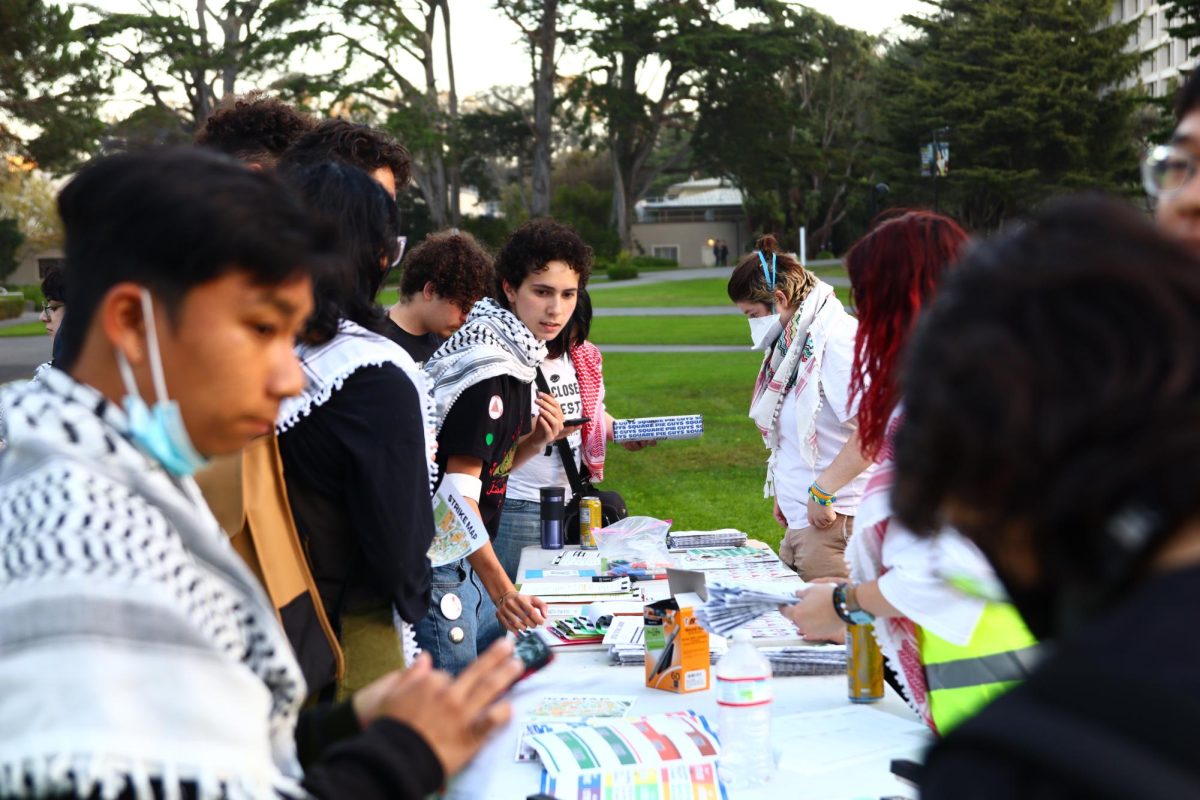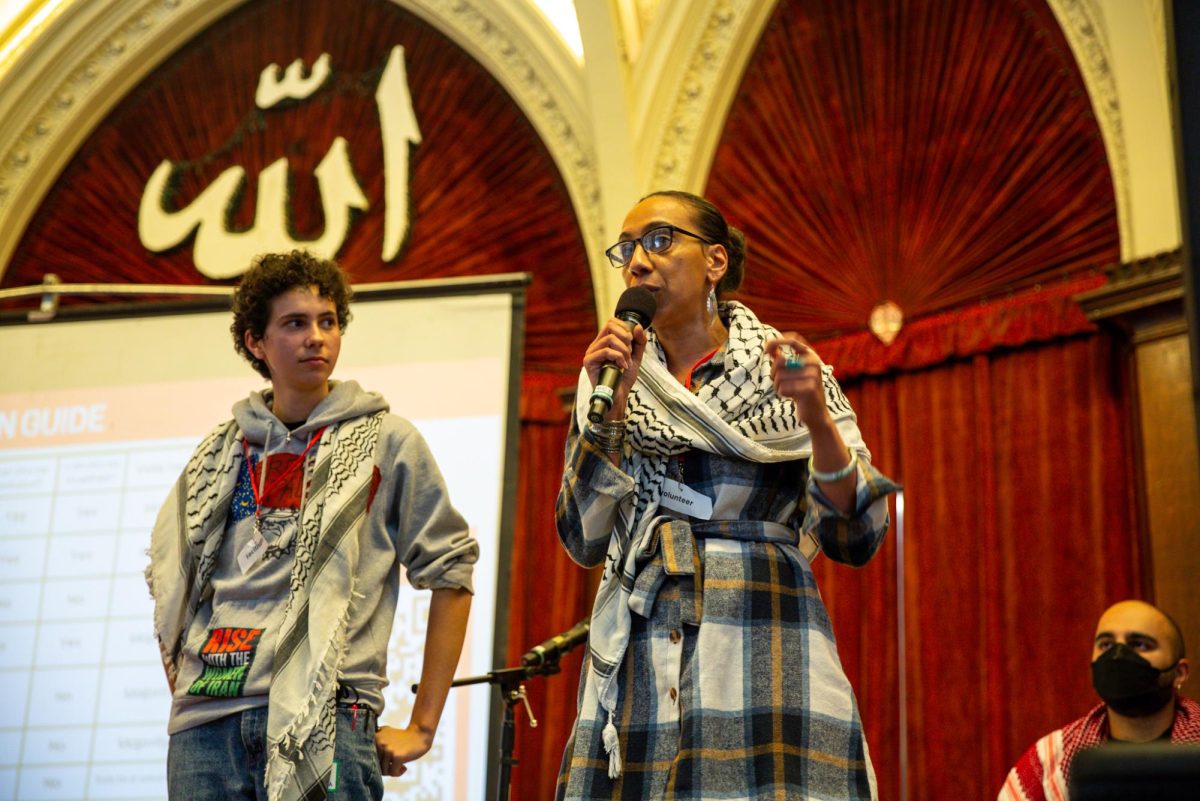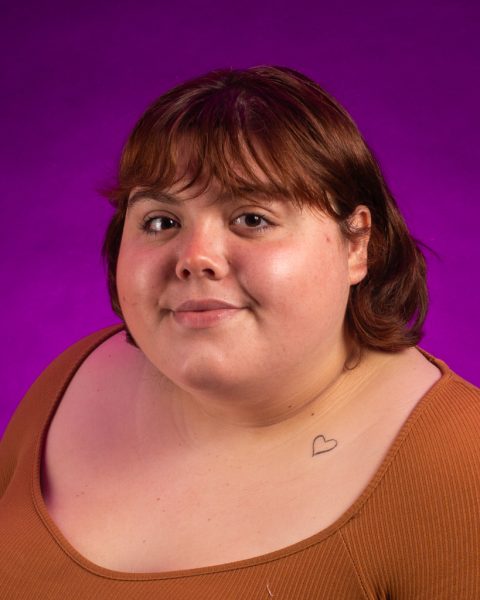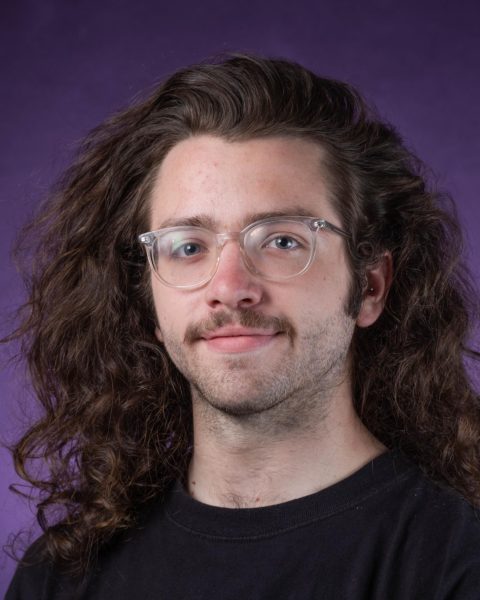San Francisco State University students gathered in the cold, misty gray on Friday night to participate in a Shabbat service at the pro-Palestine encampment in the quad.
Rabbi Lynn Gottlieb led the service, speaking on what she called the ongoing genocide in Gaza. The Jewish Voice for Peace S.F. State chapter, an advocacy organization, arranged the event. Many students, including both campers and outsiders, showed up to support the movement.
“I think having a Jewish upbringing and learning all the values that come with being Jewish, it feels irresponsible to ignore the genocide that is occurring,” said A.S, the vice president and treasurer for JVP, who preferred to go by their initials. “It just feels like the right thing to do, and standing up for oppressed people is a big part of Jewish values.”
Shabbat is the Jewish day of rest that takes place from the sunset of Friday, May 3, to the sunset of Saturday, May 4. During Shabbat, Jewish people take the day to relax and forgo any labor. The service at the pro-Palestine encampment included grape juice as a replacement for wine, which is given out before the kiddush – a ceremony of prayer and blessing over wine.
The pro-Palestine encampment began Monday, April 29 and participating students say they won’t leave until the California State University system divests from financial investments, academic partnerships and institutional relationships with companies involved with what Students for Gaza calls a genocide by the state of Israel against Gaza.
“We’re here to demand that the university disclose all of its investments and where the student’s money is going and to divest in companies supporting Israel,” said Cordy, a camper and member of JVP.
Gottlieb is among the first 10 women in history to become a Rabbi. During Shabbat, she led prayers, discussions, songs, and poems. Gottlieb said a lot of agency is needed to help the people of Gaza and that she is proud of the students’ movement to encamp.
“I came here to support students because there is a genocide happening in Gaza,” Gottlieb said after the service.
In recent days, many pro-Palestine encampments around the nation have seen pushback from police and university administration, some turning violent. Gottlieb has visited other campuses, teaching and praying with students in support of their movement.
During the service, Gottlieb said she has been working towards peace in Gaza since she was 17 years old. At age 74, she continues to support the movement. The rabbi said she thanked the students who have shown their support.
“There were a lot of people and there was great diversity here,” Gottlieb said about the service. “The idea that somehow Jewish students should be afraid is a false narrative by people who’ve never been to an encampment, and [who] are in complete denial about what’s happening in Gaza and use it to repress speech.”
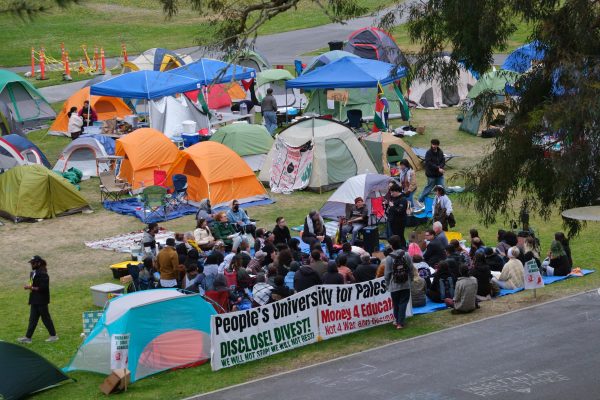
During the Shabbat service, a participant recited a poem by Palestinian poet Hind Joudeh.
“What does it mean to be a poet in wartime? It means that you apologize,” the poem read. “You apologize excessively to the burned-out trees, to the birds without nests, to the flattened houses, to the long cracks in the road’s midsection and to the children, pallid in death.”
Gottlieb asked participants during the service what they were doing at the encampment and what it meant to them.
Sydney Rincón stood up and shared her reasons for supporting the pro-Palestine encampment.
“I was raised to fight for change, to be a part of the community,” Rincón said. “It feels like we’re living in history and it is important for us to stand against injustice as it is occurring. In 23 years from now, I think we’re going to understand that we were right — there is an injustice.”
Rincón is not Jewish but is an ally of the movement. She recognized that students may be reluctant to visit the encampment but encouraged people to support the cause in any way they can.
Faculty members also joined in the service, supporting the encampment.
“When you see something beautiful like this happening, I’m drawn to it,” said Steve Dickison, a poet, writer and faculty member of the Department of Creative Writing. “As soon as I sat down at this service, I could feel tears in my eyes and it’s because every now and then, it just kind of registers what is actually happening.”
Dickison said the people in Gaza are saying, “Thank you. This is the first time in six months that we’ve heard from the world.”
The creative writing lecturer said he felt disgusted that many people, groups and organizations have abandoned the people in Gaza.
As the fog rolled over the quad, the tone was sentimental and supportive. Participants and Rabbi Gottlieb sat in a circle on a blue tarp, clapping, singing, and chanting—“Free! Free Palestine!”





